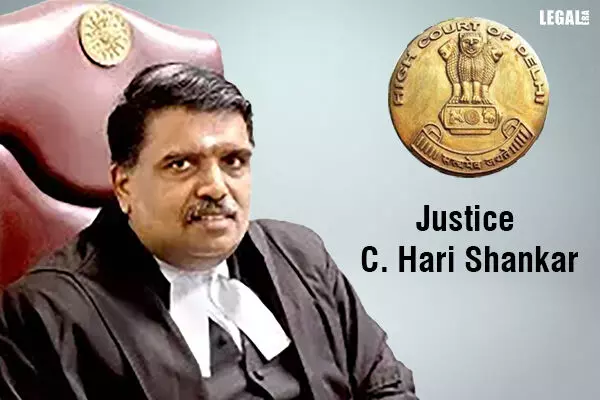- Home
- News
- Articles+
- Aerospace
- Agriculture
- Alternate Dispute Resolution
- Banking and Finance
- Bankruptcy
- Book Review
- Bribery & Corruption
- Commercial Litigation
- Competition Law
- Conference Reports
- Consumer Products
- Contract
- Corporate Governance
- Corporate Law
- Covid-19
- Cryptocurrency
- Cybersecurity
- Data Protection
- Defence
- Digital Economy
- E-commerce
- Employment Law
- Energy and Natural Resources
- Entertainment and Sports Law
- Environmental Law
- FDI
- Food and Beverage
- Health Care
- IBC Diaries
- Insurance Law
- Intellectual Property
- International Law
- Know the Law
- Labour Laws
- Litigation
- Litigation Funding
- Manufacturing
- Mergers & Acquisitions
- NFTs
- Privacy
- Private Equity
- Project Finance
- Real Estate
- Risk and Compliance
- Technology Media and Telecom
- Tributes
- Zoom In
- Take On Board
- In Focus
- Law & Policy and Regulation
- IP & Tech Era
- Viewpoint
- Arbitration & Mediation
- Tax
- Student Corner
- AI
- ESG
- Gaming
- Inclusion & Diversity
- Law Firms
- In-House
- Rankings
- E-Magazine
- Legal Era TV
- Events
- News
- Articles
- Aerospace
- Agriculture
- Alternate Dispute Resolution
- Banking and Finance
- Bankruptcy
- Book Review
- Bribery & Corruption
- Commercial Litigation
- Competition Law
- Conference Reports
- Consumer Products
- Contract
- Corporate Governance
- Corporate Law
- Covid-19
- Cryptocurrency
- Cybersecurity
- Data Protection
- Defence
- Digital Economy
- E-commerce
- Employment Law
- Energy and Natural Resources
- Entertainment and Sports Law
- Environmental Law
- FDI
- Food and Beverage
- Health Care
- IBC Diaries
- Insurance Law
- Intellectual Property
- International Law
- Know the Law
- Labour Laws
- Litigation
- Litigation Funding
- Manufacturing
- Mergers & Acquisitions
- NFTs
- Privacy
- Private Equity
- Project Finance
- Real Estate
- Risk and Compliance
- Technology Media and Telecom
- Tributes
- Zoom In
- Take On Board
- In Focus
- Law & Policy and Regulation
- IP & Tech Era
- Viewpoint
- Arbitration & Mediation
- Tax
- Student Corner
- AI
- ESG
- Gaming
- Inclusion & Diversity
- Law Firms
- In-House
- Rankings
- E-Magazine
- Legal Era TV
- Events
The High Court is required to respect the exercise of discretionary powers by the district judiciary and not play the role of headmaster: Delhi High Court

The High Court is required to respect the exercise of discretionary powers by the district judiciary and not play the role of headmaster: Delhi High Court
Justice C. Hari Shankar of the Delhi High Court ruled that the High Court is required, at all times, to respect the exercise of discretionary powers by the district judiciary and not to act in a manner as could convey an impression that the court is playing the role of headmaster.
The Court observed, "It is only as a matter of chance hierarchal circumstance that this Court is "above" the district judiciary. Else, the district judiciary, and the learned Courts of which it is comprised, exercise jurisdiction which, subjectively, is co-equal to the jurisdiction exercised by this Court."
The Court was hearing an appeal challenging an order passed by Additional District Judge (ADJ) in a matter pertaining to a property suit in which the respondents, as the plaintiffs in the suit, complained that the petitioner had installed a locked iron gate on the terrace of the fourth floor, thereby restraining access of the respondent to the terrace.
In the suit, decree of mandatory injunction, directing the petitioner to forthwith remove the iron grills installed above the fourth floor of the staircase, which prevented access, by the respondent, to the rooftop and the terrace, was sought.
The learned Senior Civil Judge ("the learned SCJ") had upheld the right of the respondents to access to terrace for the purpose of use of common amenities such as fixation of antenna, water connection, electricity connection etc. and disposed off the application under Order XXXIX Rules 1 and 2 of the Code of Civil Procedure. (CPC).
On appeal, the ADJ modified the directions issued by the learned SCJ by requiring the petitioner to hand over one set of the keys to the respondents, to the lock affixed on the gate at the fourth floor so that the respondents would have independent access to the terrace at all reasonable times during the pendency of the suit.
Aggrieved, the petitioner invoked the jurisdiction vested in the High Court by Article 227 of the Constitution of India before the Delhi High Court.
The Court held that the impugned order passed by the learned ADJ is purely discretionary in nature and the directions issued by the learned SCJ were modified by him in the manner which, according to him, were best suited to the interests of equity and justice.
According to the Court, such a discretionary order, which cannot be said in any manner to suffer from perversity is completely immune from challenge under Article 227 of the Constitution of India.
The Court thus refused to interfere in the matter stating that the order passed by the learned ADJ is well reasoned, and reflected a proper appreciation of the rival equities in the case. The Court added that it is a discretionary order and does not suffer from perversity of any kind.
The petition was dismissed in limine.



